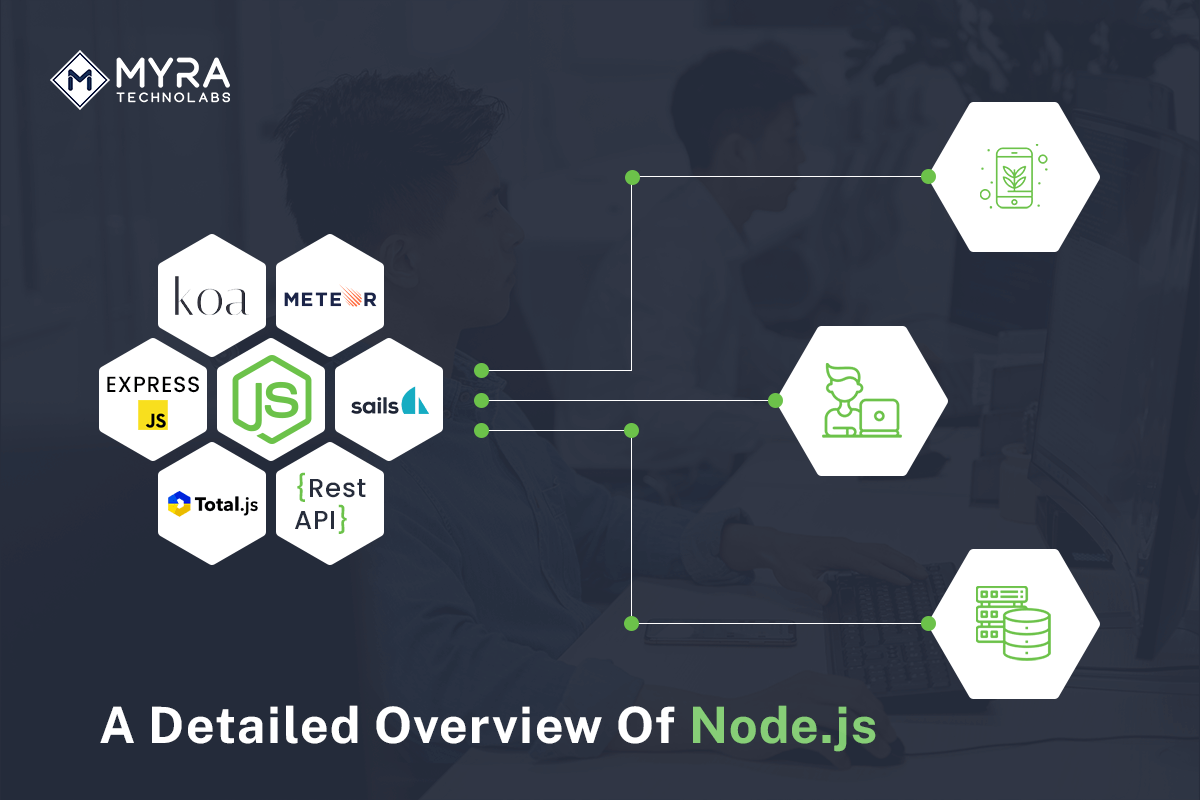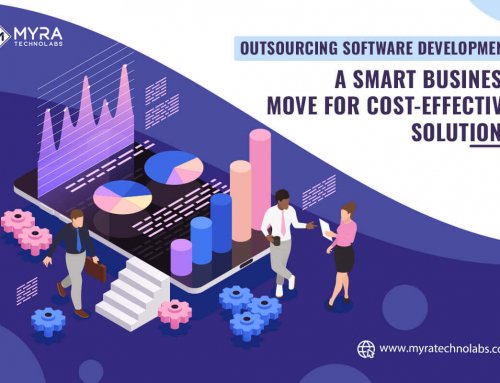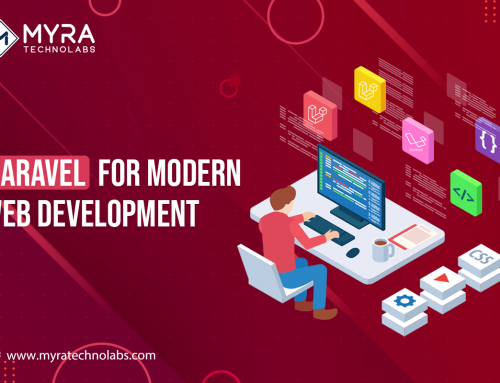A Brief About Node.js
Node.js is a JavaScript runtime environment that is open-source and cross-platform in nature. Developers get to create networking tools and web servers using JavaScript and a large number of modules that can take care of core functionalities. Node.js was created with the idea of extending the use of JavaScript over the web browser. Node.js development is considered a better choice to build scalable and robust applications as it has a non-blocking event-driven I/O model, unlike other programming languages.
The Origin of Node.js – How does everything get started?
The reason Node.js was created was that Dahl was not happy with the way the Apache HTTP server handles different concurrent connections at the same time. He even not approved of the way code was blocking the process completely.
This led to the creation of Node.js which makes use of Google’s V8 JavaScript engine, low-level I/O, and event loop. In the year 2011 Microsoft along with Joyent implemented Node.js in a native Windows version and the first version was released in July.
Later in 2012, Dahl promoted his co-worker Isaac Schlueter to take care of the project.
How Does it Work?
Node.js and JavaScript are run on the V8 JavaScript runtime engine. The JavaScript code is converted into faster machine code using this V8 engine.
Node.js Architecture is composed of
-
Single-Threaded
Node.js has a single thread approach and it avoids context switching.
-
Event Loop
Even with the single thread features, Node.js get to perform non-blocking I/O operations due to the event loop. A flow of callbacks waits for the transaction that passes through Node. Node takes care of queuing and the process of different asynchronous events using the libuv library.
-
Non-Blocking I/O
Non-blocking I/O works in a single thread. However, here the runtime tasks are executed asynchronously on the thread of the worker and the result is returned through a call back to the thread of the event loop.
-
Front-End Development
A frontend is all about UI and handling events. It interacts with the backend of the app to retrieve data requested by the user. The front end of the app is what is visible to the user and he or she interacts with it to perform different activities.
-
Back-End Development
The backend is all about database interaction and server-side scripting. It deals with the data that is requested by the user from the front end. Generally, the backend of the app is not visible to the user.
Features of Node.js
-
Encourages Sharing
Node.js comes with NPM which makes sharing easier. Here developers get to build effective solutions as its repository consists of 50,000 packages. NPM makes it easier for developers to share, update or reuse codes.
-
Lightweight and Scalable
V8 engine speeds up Node.js development services without compromising on security or quality. Moreover, the application becomes scalable, lightweight, and network-friendly because of the non-blockage of the thread.
-
Data Streaming
HTTP request responses are actually data streaming even though they are considered isolated events. You can use data streaming in Node.js by using the features like processing file once it has been uploaded. This way processing time gets reduced drastically.
-
High-Performance
Network applications become seamless due to the single-threaded JavaScript runtime. Node.js is best for multiple operating systems as it is built on V8 runtime and is coded in C++. Both Node and V8 get updated at regular intervals with security patches & performance optimization while offering support for the features of JavaScript.
-
Ideal for Real-Time Applications
It is ideal for creating real-time applications as well as the ones that require a non-blocking server or event-based server. A good Node.js development company can help you develop real-time applications like gaming apps or chats.
-
Suitable for Microservices
Many big companies are now having Node.js for their microservices. The main reason for it is the ability of Node.js to optimize the app performance. Moreover, it becomes simpler to operate the microservices on applications over Node.js by removing unwieldy modules.
-
Cross-Platform Development
You get to build cross-platform applications using Node.js due to its collaboration with NW.j or Electron.
-
Powerful Single Codebase
With Node.js developers get to code JavaScript on the client-side and the server-side. Developers get to save a lot of development time as it makes it easy to synchronize and send data automatically between the points.
Something more about Node.js
Node.js enjoys flexibility by leveraging features like cluster module which enables load balancing for different CPU cores. Moreover, it becomes easier to monitor and deploy /node applications by using robust tools like PM2 process manager.
Node.js is on the path of constant improvement
With each passing day, Node.js is improving. New releases are launched every now and then while it keeps improving the standards of the features. Moreover, it will keep getting better in the coming future with the support it receives from the open-source community. So, when you choose a Node.js development company you will be able to enjoy the same improvements in your project.
Advantages of Node.js
Node.js has proved to be the best solution when it comes to building real-time applications, microservices, and the Internet of Things due to the millions of downloads it has. The demand for Node.js is increasing and it is getting more popular as compared to other technologies
The benefits of Node.js development services are:
- It is possible to code for the client-side and server-side in JavaScript.
- Node Package Manager is continuously growing and it offers many modules and tools that will help in boosting productivity.
- Frontend and backend development becomes efficient with the development process.
- As compared to other technologies, code execution is faster.
Why are Companies Switching to Node.js Development?
Ever since its release, Node.js has managed to get the attention of developers. Node.js has turned out to be the best choice for building real-time applications due to its open-source and cross-platform nature.
What Do You Think is the Future of Node.js?
With Node.js, development has been simplified as it has JavaScript which is present both on the server and browser. Node.js has already proved its importance in the Internet of Things while it will remain the first choice for developing mobile and web-based backend systems. Everything points to the fact that the future of Node.js is bright and it will be on the top list of programming languages in the years to come.





